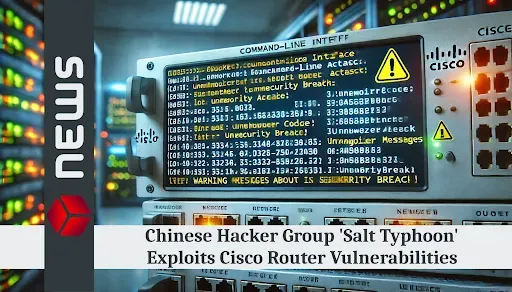Persistent Threat to Global Telecommunications
The Chinese state-sponsored hacking group known as 'Salt Typhoon' has continued its cyber-espionage activities, targeting telecommunications networks worldwide. Despite previous exposures and sanctions, the group remains active, infiltrating five telecom and internet service providers globally between December and January, including entities in the U.S. and a U.S.-based subsidiary of a UK telecom firm. Additionally, more than a dozen universities across various countries have been compromised.
Exploitation of Cisco IOS Vulnerabilities
Salt Typhoon has been exploiting vulnerabilities in Cisco's IOS software, which powers the company's routers and switches. By targeting these weaknesses, the hackers gain full control over the devices, allowing them to establish and maintain access to the networks. They utilize generic routing encapsulation (GRE) tunnels to exfiltrate data covertly, making detection challenging. This method underscores the importance of timely software updates and robust security measures to protect network infrastructure.
Implications and Ongoing Risks
The persistence of Salt Typhoon's activities highlights the evolving nature of cyber threats and the need for continuous vigilance. The group's ability to adapt and exploit new vulnerabilities poses significant risks to global telecommunications and other critical sectors. Organizations are urged to implement comprehensive security strategies, including regular system updates, network monitoring, and employee training, to mitigate potential breaches.


